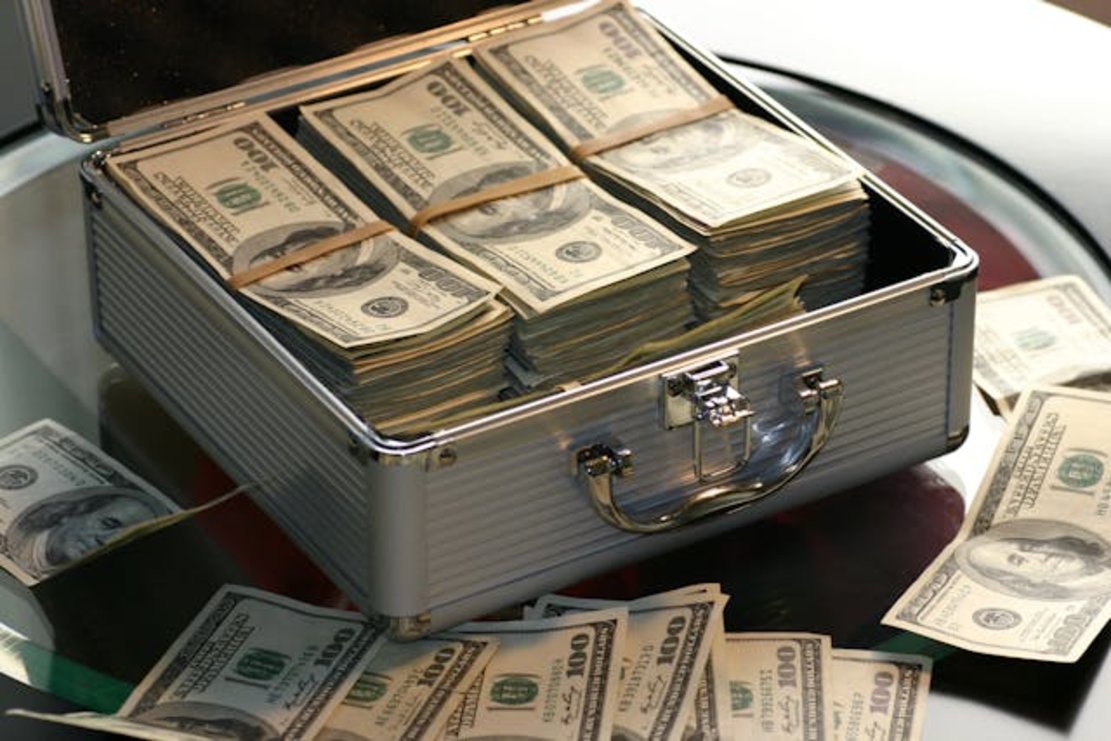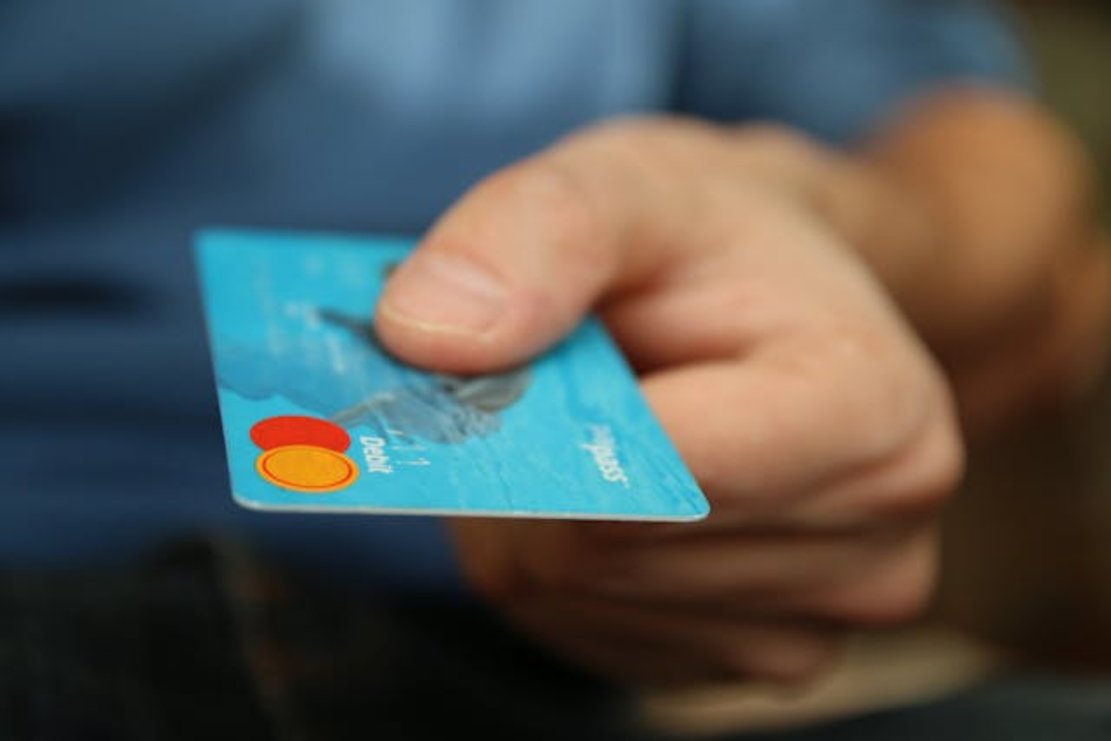How Much Does It Cost To Start a Restaurant? A Complete Financial Breakdown
It’s exciting to finally get one step closer to your dream of starting your restaurant. Before starting this venture, you must do your homework because preparation is vital to your success. The first question to which you want an answer is, ‘How much does it cost to start a restaurant business?’
The problem is that there is no exact figure, as several variables affect the final cost. According to RestaurantOwner.com, the median cost to open a 3,070 sq. ft. new restaurant is $375,500. But this isn’t what you’ll necessarily have to pay. How much is it to own a restaurant? It can be under $175,000 or even higher than $750,000.
So, why is there such a significant difference in the total cost estimate? This article highlights all the small restaurant startup costs you must consider. Continue reading to get an estimate of what the final bill will be to launch your restaurant.
Difference Between Restaurant Costs and Expenses
You’ll keep hearing about restaurant costs and expenses, and may assume they mean the same thing. However, they have different meanings, as highlighted below:
-
Restaurant costs: The restaurant costs are one-time expenses or investments you need to make to start your eatery. Think of these costs as the first hurdle you need to clear to start your restaurant. For example, buying kitchen equipment, obtaining the necessary licenses, and renovating the space.
-
Restaurant expenses: Restaurant expenses are recurring, i.e., bills you must pay regularly. You must keep clearing these hurdles to continue operating your restaurant smoothly. For example, the rent, payroll, utilities, and advertising are expenses you need to pay every month.
Restaurant Startup Costs Breakdown
Now, let’s answer the question — how much does it cost to open a restaurant? As highlighted earlier, you must look at the startup costs for a restaurant in detail, which the following sections cover.

Initial Space Costs: Lease and Security Deposits
Do you want to know how much to start a small restaurant? To calculate this figure, let’s look at the various expenses you must consider. The first cost you’ll have to deal with is space costs, i.e., the building where you’ll set up your eatery. The average cost to open a restaurant depends on whether you’re renting, leasing, or buying the property.
If you buy the property, you must pay a significant amount upfront. But if you don’t have the budget, the best option is to lease the property. The estimated lease cost will be $159 per square foot.
Realistically, it can range between $100 - $800 per square foot. It can go lower, but you may not get a good location.
Now, the building’s owner will ask for a security deposit, usually the first month’s rent.
The initial space cost can vary depending on the location. If you’re in a neighborhood with excellent foot traffic, the cost per square foot will increase substantially.
While searching for a property, try to find one where the previous tenant was also a restaurant owner. This will reduce the amount you need to spend on renovating the building.
Renovation and Design Expenditures
The second cost of opening a restaurant to consider is renovating and designing the space according to your restaurant’s requirements. Again, the cost can vary depending on your property size, location, and how much you need to renovate your space.
If you have a 2,000 sq. ft. property, a mid-level renovation estimate is $160 per square foot. How much to open a small restaurant if you only do minimal renovation and design? In this case, the cost of starting a restaurant is $10,000.
If you want to set up a fine-dining restaurant, the restaurant fit out costs $100,000 or more.
Essential Kitchen Equipment and Appliances
You need to acquire kitchen equipment and appliances for your staff. You hit the jackpot if you find a building that already has a few equipment and appliances. Otherwise, you’ll need to source them and add these futures to the average cost to start a restaurant.
Here are a few things you must have in your building:
- A hood to ensure there is adequate ventilation in the kitchen space
- Refrigerators and freezers to make sure the food stays fresh
- Shelves to store dry ingredients, i.e., items that don’t require refrigeration
- Dishwashers so that your staff can clean various utensils quickly and safely
- Cooking equipment like fryers, grills, flat-top ovens, pans, and pots
- Preparation equipment, like cutting tools and food processors
- Safety gear, such as a fire suppression system, gloves, goggles, and other equipment
You will need $40,000 - $200,000 as the average restaurant startup cost for your establishment. You can reduce costs by leasing expensive equipment and renting the necessary tools and appliances.
Dining Area Setup: Furniture and Tableware
You move to the dining area, which requires furniture and tableware. The cost of starting a restaurant can vary depending on your decor and concept. The estimate will be higher if you want to set up a fine dining restaurant. However, the cost will be substantially lower for fast food or cafes.
It’s also important to consider the lighting, as this sets the vibe for your establishment. Another factor is what you want to display on the walls. Artwork is a good option, but you can also consider plants to give your space an earthy and welcoming look.
If you want to host live music nights, you’ll need a good speaker system and a stage. You can rent a high-quality speaker system for a live music session. It’s also possible to dedicate a space for the musicians to place their equipment instead of building a space.
You will require $5,000 - $50,000 to account for this cost. This depends on the size of your space and how much furniture and tableware you need.
Technology Requirements: POS Systems and More
The technology you use ensures your restaurant runs smoothly without facing unnecessary issues. Ideally, you want the following systems in place:
- Point of sale (POS) system: The POS system handles inventory, payment, and orders. The hardware will cost at least $1,000. The software can cost $60 - $250 or more per device. You need a professional to install the hardware and train your staff to use these devices. It will cost approximately $75 - $125 per hour.
- Restaurant app: Having your restaurant app is nice because it can help your operations. You can manage your loyalty programs, accept delivery and takeaway orders, and more with the app. It can be expensive, as you need $2,000 - $8,000, depending on the number of features. -__ Front-of-house or reservation system__: The front-of-house or reservation system handles table reservations and waitlists, which cost $50 - $200 monthly.
- Accounting software: You want to ensure you’re keeping track of your cash flow accurately, which is straightforward with accounting software. You can generate reports, manage payrolls, and monitor your expenses.
Consider other technology, like security cameras, printers, tablets, and desktops or laptops, in your cost to start a small restaurant.
Initial Inventory: Stocking Your Kitchen
When your restaurant opens, you must ensure you have the ingredients to make all the dishes on your menu. This is part of the initial inventory costs. Your food inventory accounts for a significant portion of your budget, i.e., to the tune of 25% - 35%.
The cost to run a restaurant varies based on the number of seats and dishes. Of course, you can always reduce food costs by reducing the number of dishes on your menu. This is a good idea if you’re launching your restaurant.
This way, you can see how your guests react to your meals before deciding to expand the menu. It can optimize the cost of owning a restaurant.
Licensing and Regulatory Fees
Licensing and regulatory fees are crucial for running your restaurant. You’ll need the following licenses and certificates to open your restaurant:
- Business license
- Certificate of occupancy
- Signage permit
- Food service license
- Entertainment license
- Alcohol license
- Health permits
Each license has a separate fee, and you need all of them for your restaurant. The cost varies depending on the state. We recommend hiring a lawyer with the expertise to help you acquire the necessary paperwork.
You’ll need around $150 - $325 every hour to hire a good lawyer for your business. This is the average cost to open a small restaurant because they’ll save time and effort.
The estimate to get the paperwork is $10,000. Again, this can vary depending on the state, which dictates how many licenses you must acquire.
Marketing Budget: Launching Your Brand
Finally, you need a marketing budget to launch a new restaurant. Marketing ensures people know about your eatery. Here are all the marketing elements you need to account for in your budget for opening a restaurant cost:
-__ Website__: You need a website because your customers will see this first when they search for your restaurant. It must provide accurate information about your eatery, like opening and closing times, menu, location, and contact information. -__ Social media account__: You must have social media accounts because most customers will be on these platforms. It’s free to create an account on any social media site. However, to run ads, you’ll need a budget. - Offline marketing: Offline marketing involves using print media, TV, radio, and other traditional marketing platforms. They can be more expensive than running ads on social media platforms and other sites. - Online marketing: Online marketing is vital because it enables you to reach a specific audience easily. You can choose your target audience and run ads accordingly. Again, this is cheaper than offline marketing.
The total budget will be 3 - 6% of the revenue you generate in your restaurant. Set aside 6% of your restaurant’s revenue for marketing, as you need to get your audience’s attention. After establishing yourself in your neighborhood, you can scale down your marketing expenses.

Ongoing Operational Expenses
Moving on, let’s look at restaurant expenses, i.e., operational expenses to keep your restaurant running.
Rent and Lease Commitments
You can ignore this section if you want to buy the property outright. Otherwise, you have to account for rent and lease commitments.
The building’s rent can vary depending on the location. It can be as high as $10,000 or more in popular areas. In an area with lower foot traffic, the estimated monthly expense is up to $5,000.
The lease expenses can hover between $3,000 - $20,000 or even more, based on the property’s location and size.
Utility Costs: Power, Water, and Beyond
You need to consider the following utilities, as they are part of the average cost of opening a restaurant:
- Electricity
- Water
- Sewage
- Internet
- Waste management
Your expenses in this category depend on your property size. If your building is 4,000 sq. ft. - 4,500 sq. ft., expect to pay $1,000 - $1,200 monthly.
Labor Costs: Salaries, Wages, and Benefits
Labor costs account for a large portion of your restaurant’s expenses. You’ll need to account for the following staff:
- Front-of-house: Front-of-house staff will be in the dining area with your guests. They are servers, bartenders, bussers, and hosts.
- Back-of-house: Hack-of-house consists of people who spend most of their time in the kitchen. This category includes all your chefs, dishwashers, and line and prep cooks.
- Management: The management comprises all the executives working in your restaurant. This includes managers and general managers, i.e., the staff to manage your restaurant.
You will usually offer wages to the front-of-house and back-of-house staff. The rate depends on their skills and formal training.
The management will receive salaries for their work. You must also account for benefits like paid time off, overtime, and health insurance. Expect 25% - 35% of your expenses from labor costs.
Ongoing Food Costs: Inventory Management
You must consider ongoing food costs once your restaurant opens to customers. You must maintain the food’s freshness and avoid wastage as much as possible.
Moreover, you must buy fresh ingredients regularly and have sufficient spices and cooking oil stock. Canned goods are also a good option because of their long expiry dates.
You must set aside 40% - 60% of your restaurant budget to maintain your food and beverage stock.
Tech Maintenance: Software Subscriptions and Updates
Technology will have recurring costs due to subscriptions and hardware maintenance. This includes POS system fees, food delivery platform fees, and accounting software fees. Depending on how many tech products you use, you may also have to pay additional fees.
The Role of Marketing in Ongoing Operations
Marketing is vital because it ensures people continue to visit your restaurant. Without restaurant marketing, filling all the seats in your eatery becomes harder. You need to budget for the following marketing campaigns in your average startup cost for a restaurant:
- Social media ads -Email marketing
- Customer loyalty programs
- Influencer marketing
How much money is needed to open a restaurant? The budget you set aside for these campaigns depends on your goals for your restaurant.

Additional Costs To Plan For
You must budget for other costs to ensure your investment is safe and your restaurant runs like a well-oiled machine.
Insurance: Protecting Your Investment
There is a great deal of risk when working in a restaurant. It’s a high-stress environment, especially for your kitchen staff. Moreover, they deal with sharp objects like knives, hot utensils, and dishes.
The easiest option is to work with an agent that will help you get the necessary restaurant insurance like:
- Workers’ compensation insurance
- Commercial property insurance
- General liability insurance
- Liquor Liability Insurance
- Business interruption insurance
- Commercial auto insurance
- Property insurance
These insurance policies will cost $1,000 - $10,000 annually. They can be higher in cities like Los Angeles and New York City.
Staff Training and Development Expenses
Staff training is vital for running your eatery efficiently and keeping your guests happy. It can ensure your staff follows the highest standards and provides exceptional service. You need to account for:
- Onboarding: You must ensure your staff is familiar with your expectations and your restaurant’s procedures.
- Hardware and software training: Your staff should be able to use all the devices and software in your restaurant without any issues.
- Health and safety protocols: Employees must be aware of all the practices they must follow to maintain health and safety standards in your kitchen.
Contingency Funds: Planning for the Unexpected
You also have to keep contingency funds, i.e., capital, in case something happens out of the blue. For example:
- Equipment breaks down, so you need to find a replacement quickly
- You have to repair the building’s roof, wiring, or plumbing
- Temporary closure due to unexpected situations, like extreme weather conditions
Ideally, you should have six months’ worth of expenses as your contingency fund.
Funding Your Restaurant Venture
Once you estimate how much money you need, you can create your business plan for your restaurant. The final step is to secure the necessary funding from the following options.
Traditional Loans vs. Alternative Financing Options
Banks offer traditional loans, where you receive capital and need to make monthly payments with interest. You need to provide collateral in case you’re unable to repay the loan.
Interest rates depend on market conditions and your credit score. You can always check to see if you qualify for a small business loan from the government.
The second option is to find investors or partners to fund your venture. They will provide the necessary capital in exchange for a stake in your restaurant.
You can also consider crowdfunding your new restaurant, i.e., you ask people to help bring your vision to life. GoFundMe, Indiegogo, and Kickstarter are excellent platforms.

A Checklist for Aspiring Restaurant Owners
As a restaurant owner, make sure you follow this restaurant startup costs checklist:
- Determine how much you want to renovate the existing space
- Set aside a marketing budget for promoting your restaurant, cafe, or pub
- Analyze the total cost and have an estimate for starting your restaurant
- Develop a solid business plan that covers all the bases
- Be realistic with your sales and profitability projections
- Have multiple options to acquire funds for your venture
- Purchase the necessary equipment for your kitchen
- Invest in the right technology stacks
- Have proper account systems in place
- Find the right staff
- Account for miscellaneous expenses
- Ensure you maintain the minimum balance for your contingency fund
Analyzing Potential Profitability
You must analyze your restaurant’s potential profitability before you open the doors to customers. This involves establishing the break-even point. It is a point where you have enough cash flow to cover all expenses.
You must account for food and labor costs, as they consume much of your revenue. It’s also important to analyze your profit margins.
Moreover, you must look at your cash flow, i.e., how much money comes in and goes out of your bank account. Money comes in from your customers and goes out via your expenses. You must always make sure you have sufficient cash in your account to handle daily or unexpected expenses.
Key Takeaways for Future Restaurant Owners
Here are some key takeaways for future restaurant owners:
- Expenses will fluctuate: There will be price changes, especially for food and beverages, so account for this fluctuation.
- Have sufficient cash flow: It’s always better to have more cash coming in than going out of your account.
- Maintain your contingency fund: You never know when you’ll need it, so make sure it’s always available in case of emergencies.
- Planning is everything: Have a realistic plan for your restaurant and when it will become profitable.
Wrapping Up
How much money does it take to start a restaurant? We hope our guide answered this question and provided the inspiration to get cracking and make your dream a reality. Use all the costs highlighted above to plan and successfully launch your restaurant.
You should also know that you must provide guest WiFi to your restaurant’s patrons. They will ask for this utility. They may be unhappy with your eatery if you don’t have it.
However, with Beambox’s WiFi marketing solutions, you can turn this expense into a revenue stream. We’ll make your WiFi a marketing powerhouse for your establishment. It can collect ample information about your audience to power your marketing campaigns.
You can display ads and promotional content and get customers to visit your website.
You can create a login page to ensure only your diners use your guest WiFi. This enhances your network’s safety by only allowing authorized people to access your WiFi. Moreover, you can easily customize this page as per your branding guidelines.
Use Beambox today to provide WiFi to your guests and make this utility an asset that powers your restaurant’s growth!
Get Started With Free WiFi Marketing
Beambox helps businesses like yours grow with data capture, marketing automation and reputation management.
Sign up for 30 days free

